Health Benefits of Hypoallergenic Concrete Floors
July 30, 2024
Improve your indoor air quality and benefit those with allergies and respiratory issues.
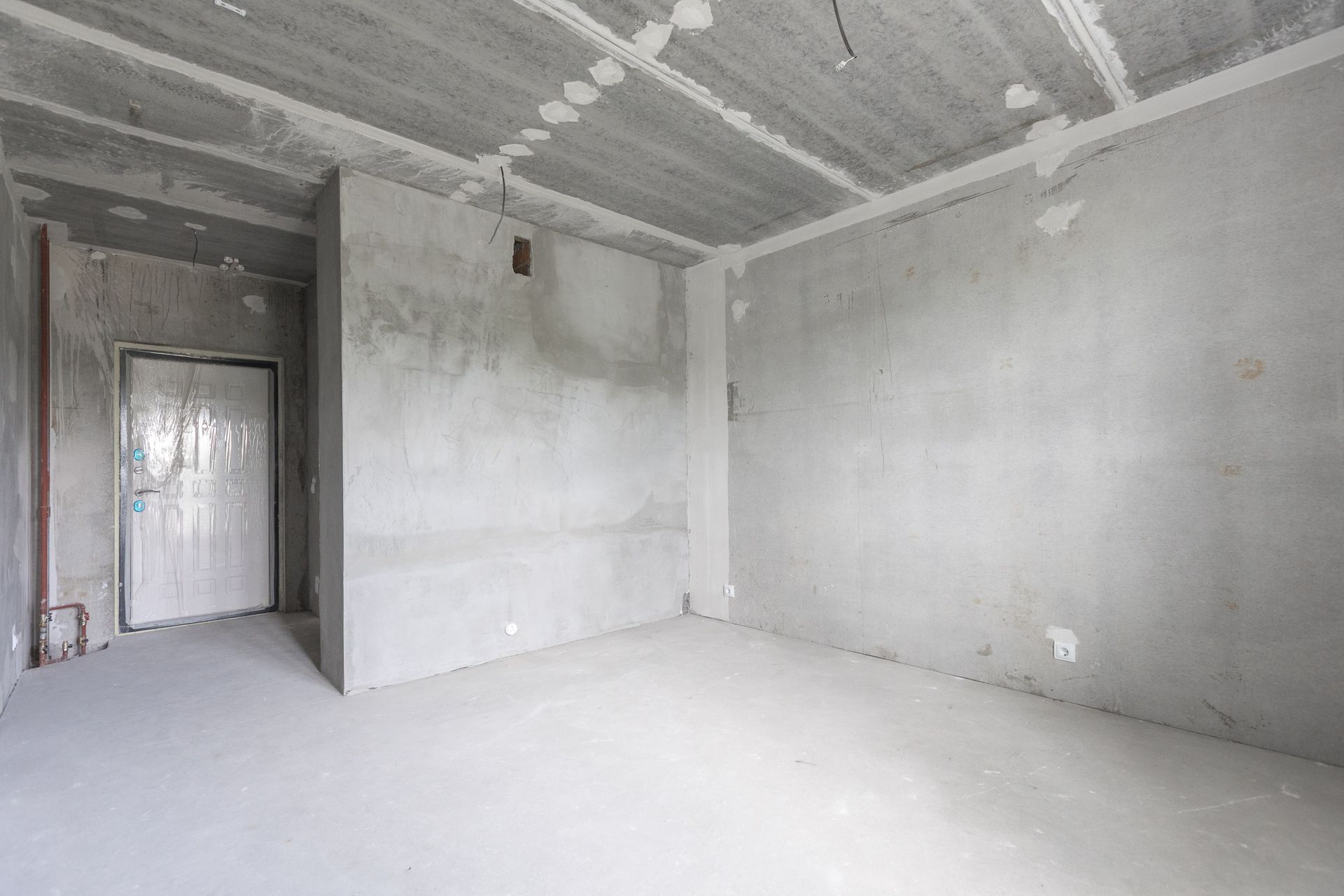
Concrete floors have long been appreciated for their durability and aesthetic appeal, but one of their lesser-known advantages is their contribution to healthier indoor environments. Chamblee Concrete Company is dedicated to highlighting the health benefits of hypoallergenic concrete floors. In this blog, we will explore how concrete floors can improve indoor air quality and benefit individuals with allergies and respiratory issues.
Improved Indoor Air Quality
Indoor air quality is a crucial aspect of maintaining a healthy living or working environment. Poor air quality can lead to various health issues, particularly for individuals with allergies or respiratory conditions. One of the primary ways hypoallergenic concrete floors contribute to improved indoor air quality is by minimizing the accumulation of dust, allergens, and other pollutants.
Unlike carpets, which can trap dust, pollen, pet dander, and other allergens, concrete floors have a smooth, non-porous surface that does not harbor these particles. This characteristic makes it easier to keep the floors clean and reduces the presence of allergens in the indoor environment. Regular sweeping and occasional mopping are usually sufficient to maintain a clean and allergen-free floor, significantly improving the air quality in the space.
Resistance to Mold and Mildew
Concrete floors are highly resistant to mold and mildew, which are common triggers for allergies and respiratory issues. Mold and mildew thrive in damp and humid environments, often developing in hidden areas such as beneath carpets or inside wall cavities. The non-porous nature of concrete floors prevents moisture from penetrating the surface, reducing the risk of mold and mildew growth.
By choosing concrete floors, you can create a healthier indoor environment that is less conducive to mold and mildew. This is especially beneficial in areas prone to high humidity, such as basements, bathrooms, and kitchens. The absence of mold and mildew not only improves air quality but also protects the structural integrity of the building.
Hypoallergenic Properties
Concrete floors are inherently hypoallergenic, making them an ideal choice for individuals with allergies or asthma. Traditional flooring materials like carpets and rugs can trap allergens, dust mites, and other irritants, leading to frequent allergic reactions. In contrast, concrete floors do not provide a habitat for these allergens, reducing the likelihood of exposure.
For families with children or pets, hypoallergenic concrete floors offer a safer and healthier flooring option. Children, in particular, are more susceptible to allergens and respiratory issues, making it essential to create an environment that minimizes their exposure to potential triggers.
Easy to Clean
The ease of cleaning concrete floors is another significant advantage for those concerned about indoor air quality and allergies. Regular cleaning routines are simple and effective, involving basic tools like a broom, mop, and mild detergent. This simplicity reduces the need for harsh chemical cleaners that can release volatile organic compounds (VOCs) into the air, further enhancing the indoor air quality.
Additionally, the smooth surface of concrete floors does not harbor bacteria or germs, contributing to a more hygienic environment. This is particularly important in spaces like kitchens and bathrooms, where cleanliness is paramount.
Reduction of VOC Emissions
Volatile organic compounds (VOCs) are chemicals commonly found in many building materials and cleaning products. These compounds can evaporate into the air and contribute to indoor air pollution, leading to a range of health issues, including respiratory problems and allergic reactions. Concrete floors, especially when sealed with low-VOC sealants, can significantly reduce the emission of these harmful compounds.
By choosing concrete floors, you can create a healthier indoor environment with lower VOC levels. This reduction is particularly beneficial for individuals with sensitivities to chemical odors and pollutants.
Longevity and Sustainability
Concrete floors are not only beneficial for indoor air quality but also offer long-term sustainability. Their durability means they require fewer replacements compared to other flooring options, reducing the need for new materials and minimizing environmental impact. Additionally, many concrete floors can be installed using existing slabs, further reducing the need for additional resources.
Conclusion
Hypoallergenic concrete floors offer a range of health benefits, from improved indoor air quality to reduced allergen exposure. Chamblee Concrete Company is dedicated to providing flooring solutions that contribute to healthier living and working environments. Whether you are renovating your home or upgrading your commercial space, consider the health advantages of hypoallergenic concrete floors. They are an excellent choice for creating a clean, allergen-free environment that promotes overall well-being.
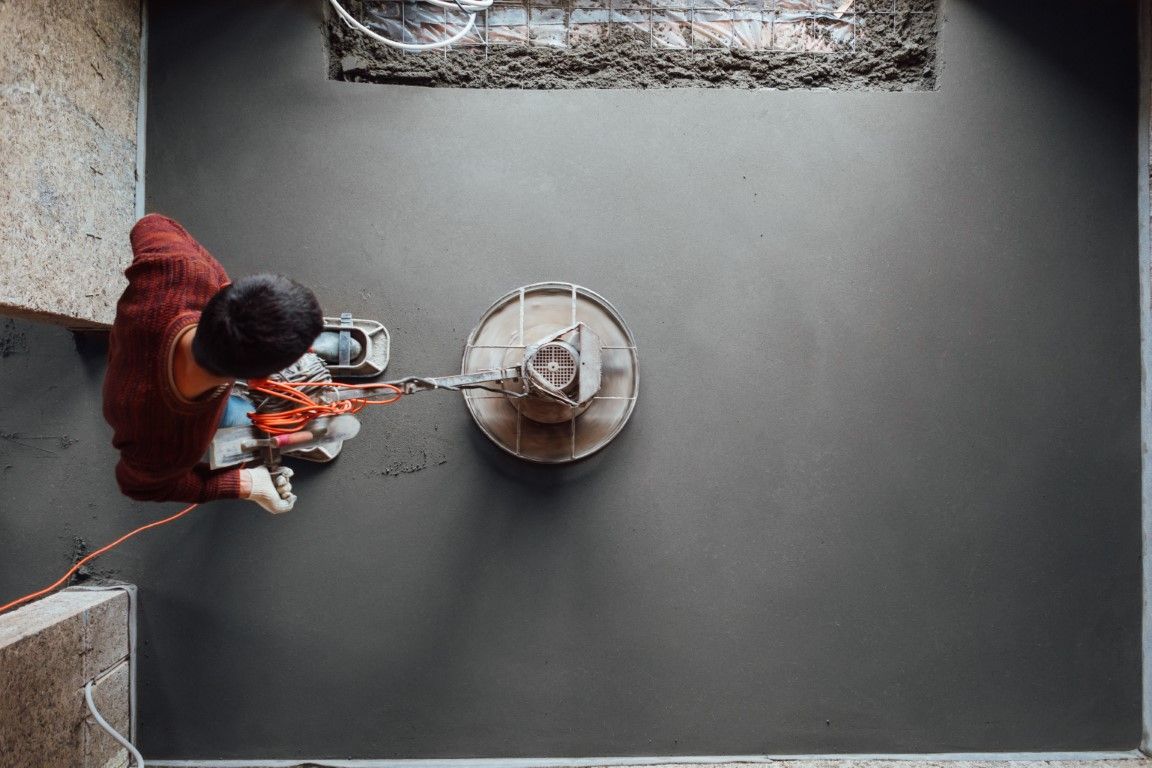
August 20, 2024
Garages often serve multiple purposes beyond just parking cars—they can be workshops, storage spaces, or even extensions of our living areas. Given their versatile use, it's crucial to have a durable and attractive floor. Epoxy-coated concrete floors offer an ideal solution, providing a blend of resilience, aesthetics, and ease of maintenance. At Chamblee Concrete Company, we specialize in transforming garages with high-quality epoxy coatings. In this blog, we will discuss the process and benefits of applying epoxy coatings to garage floors. The Epoxy Coating Process Applying an epoxy coating to a garage floor involves several critical steps to ensure a durable and long-lasting finish. Here’s a breakdown of the process: Surface Preparation: Proper surface preparation is essential for the epoxy coating to adhere correctly. This involves cleaning the concrete thoroughly to remove any dirt, oil, grease, or other contaminants. Existing coatings or sealers may need to be stripped, and the surface might be etched or ground to create a rough texture for better adhesion. Repairing Cracks and Holes: Any cracks, holes, or imperfections in the concrete floor must be repaired before applying the epoxy. This step ensures a smooth and even finish. Priming the Surface: A primer is applied to the prepared concrete surface. The primer helps the epoxy coating adhere better and provides an additional layer of protection. Mixing and Applying Epoxy: The epoxy coating is mixed according to the manufacturer's instructions and applied to the primed surface. This is usually done in multiple layers to achieve the desired thickness and finish. Each layer needs to cure before the next one is applied. Adding Decorative Elements: If desired, decorative elements such as color flakes or metallic pigments can be added to the epoxy coating to enhance its appearance. Sealing the Floor: Finally, a clear topcoat is applied to seal the epoxy and provide additional protection against wear and tear. Benefits of Epoxy-Coated Garage Floors Epoxy-coated concrete floors offer numerous benefits, making them an excellent choice for transforming your garage. Durability and Longevity One of the most significant advantages of epoxy coatings is their exceptional durability. Epoxy creates a hard, resilient surface that can withstand heavy traffic, impacts, and abrasions. This durability makes it ideal for garage floors, where vehicles, tools, and equipment can cause significant wear and tear. Chemical and Stain Resistance Epoxy-coated floors are highly resistant to chemicals, oils, and other substances commonly found in garages. This resistance means spills can be easily wiped up without staining the floor, maintaining its pristine appearance. Ease of Maintenance Epoxy-coated floors are incredibly easy to clean and maintain. The smooth, non-porous surface prevents dirt and grime from penetrating the floor, making regular sweeping and occasional mopping sufficient to keep it looking new. This ease of maintenance saves time and effort, especially in high-traffic areas like garages. Aesthetic Appeal Epoxy coatings come in a variety of colors and finishes, allowing for customization to match your garage’s style and aesthetic preferences. Adding decorative elements like color flakes or metallic pigments can create a unique and attractive look. The high-gloss finish of epoxy also enhances the overall appearance, making the garage a more inviting and visually appealing space. Improved Safety Epoxy coatings can be formulated with non-slip additives to enhance safety in the garage. These additives provide better traction, reducing the risk of slips and falls, especially in areas prone to moisture or spills. This safety feature is particularly beneficial in garages where water or oil spills are common. Enhanced Property Value A well-maintained, aesthetically pleasing garage floor can enhance the overall value of your property. Epoxy-coated floors give a polished and professional look to the garage, making it a selling point for potential buyers. This investment can yield significant returns if you decide to sell your home in the future. Conclusion Transforming your garage with an epoxy-coated concrete floor is a smart investment that offers numerous benefits. From its durability and low maintenance to its aesthetic appeal and safety features, epoxy flooring is an excellent choice for any garage. At Chamblee Concrete Company, we are committed to providing top-quality epoxy flooring solutions that meet your needs and exceed your expectations. Contact us today to learn more about how we can help you transform your garage into a durable, attractive, and functional space.
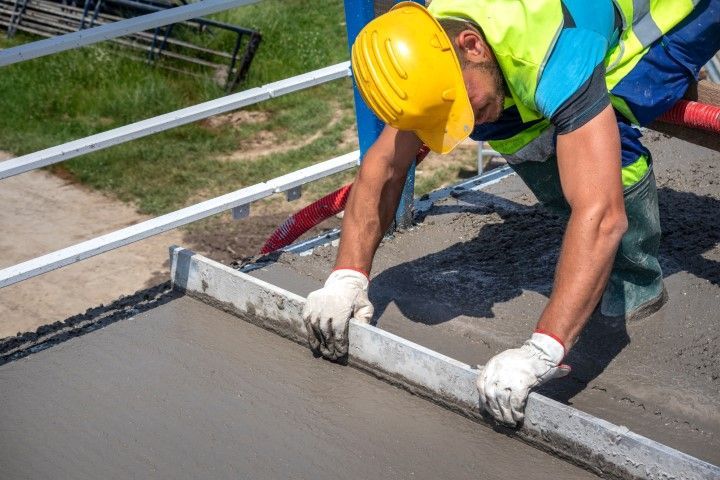
August 13, 2024
In the competitive world of commercial properties, creating an inviting and durable environment is essential. At Chamblee Concrete Company, we understand the unique demands of commercial spaces and offer a range of innovative concrete flooring solutions tailored to meet these needs. From polished concrete to decorative finishes, our options provide both functionality and aesthetic appeal. In this blog, we will showcase various innovative concrete flooring solutions perfect for commercial spaces. Polished Concrete Polished concrete is a popular choice for commercial spaces due to its sleek appearance and impressive durability. The process involves grinding and polishing the concrete surface to achieve a smooth, glossy finish. This type of flooring is particularly suited for retail stores, showrooms, and office buildings for several reasons: Aesthetic Appeal: Polished concrete has a high-gloss finish that enhances the lighting and overall look of any space. It can be customized with different levels of sheen, from matte to high-gloss, to suit specific design preferences. Durability: The polishing process strengthens the concrete, making it resistant to wear and tear. This durability is ideal for high-traffic areas where flooring needs to withstand constant use. Low Maintenance: Polished concrete is easy to clean and maintain. Regular sweeping and occasional damp mopping keep the floors looking pristine, reducing maintenance costs. Concrete Overlays Concrete overlays are an excellent solution for revitalizing worn or damaged floors without the need for complete replacement. An overlay involves applying a thin layer of cement-based material over the existing concrete surface, which can then be customized with various finishes and designs. This option is perfect for restaurants, hotels, and other commercial spaces looking to refresh their appearance quickly and cost-effectively. Versatility: Concrete overlays can be customized with different colors, textures, and patterns, allowing for a wide range of design possibilities. This versatility makes them suitable for various commercial environments. Cost-Effective: Overlays are a cost-effective way to upgrade existing concrete floors. They provide the look of new flooring without the expense and disruption of full replacement. Durability: Like polished concrete, overlays are durable and can withstand heavy traffic. They are also resistant to stains and spills, making them ideal for commercial kitchens and dining areas. Decorative Finishes Decorative concrete finishes offer endless design possibilities, allowing businesses to create unique and eye-catching flooring. These finishes can be achieved through staining, stamping, or engraving, making them a popular choice for retail stores, hotels, and entertainment venues. Stained Concrete: Staining involves applying a chemical stain to the concrete surface, creating rich, translucent color effects. Stained concrete can mimic the look of natural stone, marble, or wood, offering a luxurious appearance at a fraction of the cost. Stamped Concrete: Stamping involves pressing patterns into freshly poured concrete to create textures that resemble brick, stone, slate, or tile. Stamped concrete is perfect for creating visually appealing walkways, patios, and entryways. Engraved Concrete: Engraving involves etching designs directly into the concrete surface, creating intricate patterns and logos. This technique is ideal for businesses looking to incorporate branding into their flooring design. Epoxy Coatings Epoxy coatings provide a durable, high-gloss finish that is resistant to chemicals, stains, and abrasions. These coatings are particularly well-suited for industrial spaces, warehouses, and laboratories where floors need to withstand harsh conditions. Durability: Epoxy coatings create a hard, resilient surface that can handle heavy equipment, machinery, and foot traffic. They are also resistant to chemicals and spills, making them ideal for industrial environments. Aesthetic Options: Epoxy coatings come in various colors and can include decorative elements like metallic pigments or color flakes. This customization allows businesses to enhance the appearance of their industrial spaces. Safety: Epoxy coatings can be formulated with non-slip additives to improve safety in areas prone to spills or moisture. This feature is crucial for maintaining a safe working environment. Self-Leveling Concrete Self-leveling concrete is a fast and efficient solution for creating smooth, level floors in commercial spaces. This type of concrete is designed to flow and settle evenly, eliminating the need for extensive manual leveling. Quick Installation: Self-leveling concrete can be installed quickly, minimizing downtime for businesses. This feature is particularly beneficial for renovations or new construction projects with tight schedules. Smooth Finish: The self-leveling nature of this concrete ensures a smooth, even surface that is ready for additional finishes or coatings. This quality makes it ideal for spaces requiring precise flooring, such as laboratories and clean rooms. Durability: Self-leveling concrete provides a durable, high-performance surface that can withstand heavy use. It is also resistant to cracking and chipping, ensuring a long-lasting floor. Conclusion Innovative concrete flooring solutions offer commercial properties a combination of durability, aesthetic appeal, and cost-effectiveness. At Chamblee Concrete Company, we specialize in providing customized flooring options that meet the unique needs of our clients. Whether you're looking for polished concrete, overlays, decorative finishes, epoxy coatings, or self-leveling concrete, our team is ready to deliver high-quality, innovative flooring solutions that enhance the functionality and appearance of your commercial space. Choose Chamblee Concrete Company for flooring solutions that stand the test of time.
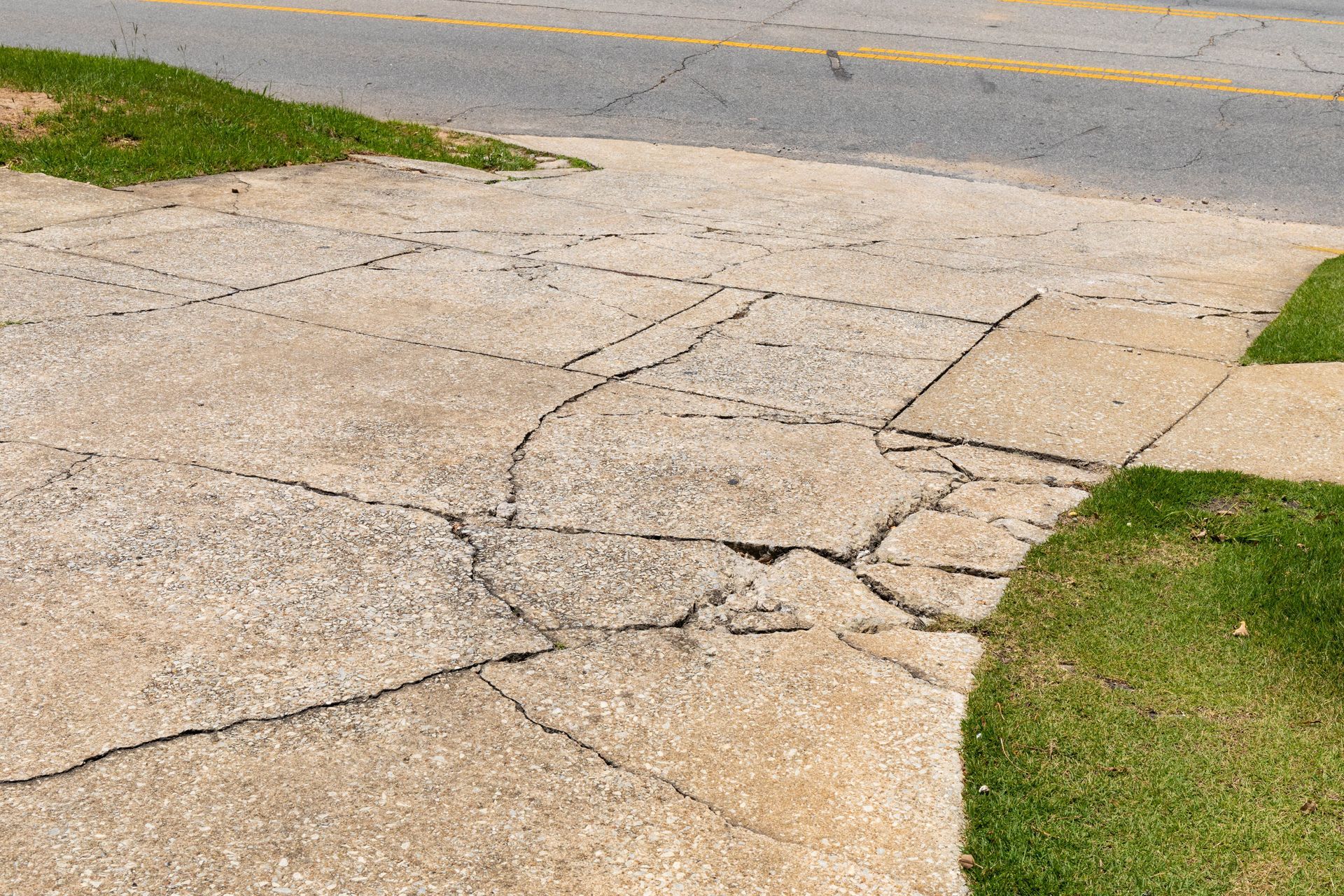
August 6, 2024
Concrete flooring has gained popularity across residential, commercial, and industrial spaces due to its impressive blend of durability, aesthetics, and low maintenance. At Chamblee Concrete Company, we believe in delivering flooring solutions that offer long-term value. In this blog, we will explore the cost-effectiveness of concrete flooring by examining the initial investment, long-term savings, and overall cost benefits. Initial Investment When considering new flooring options, the initial cost is a significant factor. Concrete flooring is often more affordable upfront compared to other premium flooring materials like natural stone, hardwood, or high-quality tile. The cost of installing concrete floors typically ranges from $2 to $8 per square foot for a basic finish, and between $5 and $15 per square foot for more intricate designs and finishes such as staining, stamping, or polishing. Several factors influence the initial investment in concrete flooring, including: Surface Preparation: The condition of the existing substrate can affect costs. New constructions generally require less preparation, while renovations may need more extensive work to remove old flooring or level the surface. Design and Finish: Basic concrete floors are more cost-effective, while customized designs, colors, and finishes increase the initial expenditure. Size of the Area: Larger areas benefit from economies of scale, often resulting in a lower per-square-foot cost. Long-Term Savings Concrete flooring offers substantial long-term savings that contribute to its overall cost-effectiveness. These savings come from various aspects, including durability, maintenance, and energy efficiency. Durability Concrete floors are known for their exceptional durability. When properly installed and sealed, concrete can withstand heavy foot traffic, machinery, and even vehicle traffic in commercial and industrial settings. Unlike other flooring materials that may need frequent repairs or replacements, concrete floors can last for decades with minimal wear and tear. This longevity translates to significant savings over time, as there is little need for costly repairs or replacements. Low Maintenance One of the most attractive features of concrete flooring is its low maintenance requirements. Regular cleaning involves simple sweeping and occasional mopping with a mild detergent. Unlike carpets that need vacuuming and deep cleaning, or hardwood floors that require periodic refinishing, concrete floors save time and money on upkeep. Sealed concrete floors resist stains and spills, making them easy to clean and maintain. This characteristic is especially beneficial in commercial spaces, where maintenance costs can add up quickly. Energy Efficiency Concrete floors can contribute to energy savings through their thermal mass properties. Concrete absorbs, stores, and gradually releases heat, helping to regulate indoor temperatures. In warm climates, concrete floors can stay cool, reducing the need for air conditioning. In cooler climates, they can retain heat from sunlight or radiant heating systems, lowering heating costs. Overall Cost Benefits When evaluating the overall cost benefits of concrete flooring, it's essential to consider both the initial investment and the long-term savings. Here are some key advantages: Cost-Effective Installation: Concrete flooring is competitively priced compared to other high-end flooring options, providing a cost-effective solution for large and small projects. Reduced Maintenance Costs: The low maintenance nature of concrete flooring leads to ongoing savings in cleaning supplies, equipment, and labor. Longevity and Durability: The extended lifespan of concrete floors reduces the need for frequent replacements, offering long-term financial benefits. Energy Savings: The thermal mass properties of concrete can lead to lower energy bills, further enhancing its cost-effectiveness. Versatility and Customization: Concrete floors can be customized to mimic more expensive materials, providing an upscale look without the associated costs. Conclusion Concrete flooring stands out as a cost-effective option due to its reasonable initial investment, substantial long-term savings, and overall financial benefits. At Chamblee Concrete Company, we are committed to delivering high-quality concrete flooring solutions that meet our clients' needs and budgets. Whether you're considering concrete floors for your home, office, or industrial space, you can trust in the value and longevity that concrete flooring provides. Choose concrete for a flooring solution that balances cost, durability, and style.

July 24, 2024
Polished concrete floors are rapidly gaining popularity in both residential and commercial settings. Chamblee Concrete Company has been at the forefront of this trend, providing top-notch polished concrete flooring solutions. In this blog, we will delve into the numerous benefits of polished concrete floors, including their durability, low maintenance, and aesthetic appeal. Durability One of the most significant advantages of polished concrete floors is their unmatched durability. Unlike traditional flooring options, polished concrete can withstand heavy foot traffic, making it an ideal choice for high-traffic areas such as retail stores, warehouses, and office buildings. The polishing process strengthens the concrete surface, making it resistant to wear and tear. This durability ensures that the flooring remains intact and looks new for many years, even in the most demanding environments. Additionally, polished concrete floors are resistant to stains and spills. The polishing process creates a dense surface that prevents liquids from penetrating the concrete, making it easier to clean and less likely to harbor bacteria. This characteristic is particularly beneficial in environments where hygiene is a priority, such as restaurants, hospitals, and schools. Low Maintenance Polished concrete floors require minimal maintenance compared to other flooring options. Their smooth, non-porous surface makes them easy to clean and maintain. Regular sweeping and occasional mopping with a mild detergent are usually sufficient to keep the floors looking pristine. Unlike carpets that require regular vacuuming and professional cleaning, or hardwood floors that need periodic refinishing, polished concrete floors save time and money in the long run. The low maintenance requirements of polished concrete floors make them an excellent choice for busy commercial spaces where maintenance time and costs need to be minimized. Additionally, the durability of polished concrete means fewer repairs and replacements, further reducing long-term maintenance expenses. Aesthetic Appeal Polished concrete floors offer a sleek and modern aesthetic that can enhance the overall look of any space. The polishing process can bring out the natural beauty of concrete, creating a high-gloss finish that reflects light and adds a touch of elegance. This reflective property not only enhances the visual appeal of the space but also contributes to energy savings by maximizing natural light. Moreover, polished concrete floors can be customized to suit various design preferences. They can be stained in different colors, embedded with decorative aggregates, or even etched with intricate patterns. This versatility allows for endless design possibilities, making polished concrete floors a popular choice for interior designers and architects. In residential settings, polished concrete floors can create a seamless and contemporary look that complements a wide range of interior styles. From minimalist and industrial to rustic and traditional, polished concrete can adapt to various design aesthetics, making it a versatile flooring option for homeowners. Environmental Benefits Polished concrete floors are an environmentally friendly flooring option. They utilize the existing concrete slab, eliminating the need for additional materials and reducing waste. This aspect is particularly beneficial in new construction projects, as it reduces the demand for new raw materials and minimizes the environmental impact. Furthermore, polished concrete floors contribute to improved indoor air quality. Unlike carpets that can trap dust, allergens, and other pollutants, polished concrete floors have a smooth surface that does not harbor such contaminants. This characteristic makes them an excellent choice for individuals with allergies or respiratory issues. Cost-Effectiveness The cost-effectiveness of polished concrete floors is another compelling advantage. While the initial installation cost may be higher than some traditional flooring options, the long-term savings in maintenance, repairs, and replacements make polished concrete a cost-efficient choice. Additionally, the reflective properties of polished concrete can reduce lighting costs, contributing to further energy savings. Conclusion Polished concrete floors offer a myriad of benefits, from their exceptional durability and low maintenance requirements to their aesthetic appeal and environmental advantages. Chamblee Concrete Company is committed to providing high-quality polished concrete flooring solutions that meet the needs of both residential and commercial clients. Whether you are looking to enhance the look of your home or improve the functionality of your commercial space, polished concrete floors are a versatile and sustainable choice that delivers lasting value.
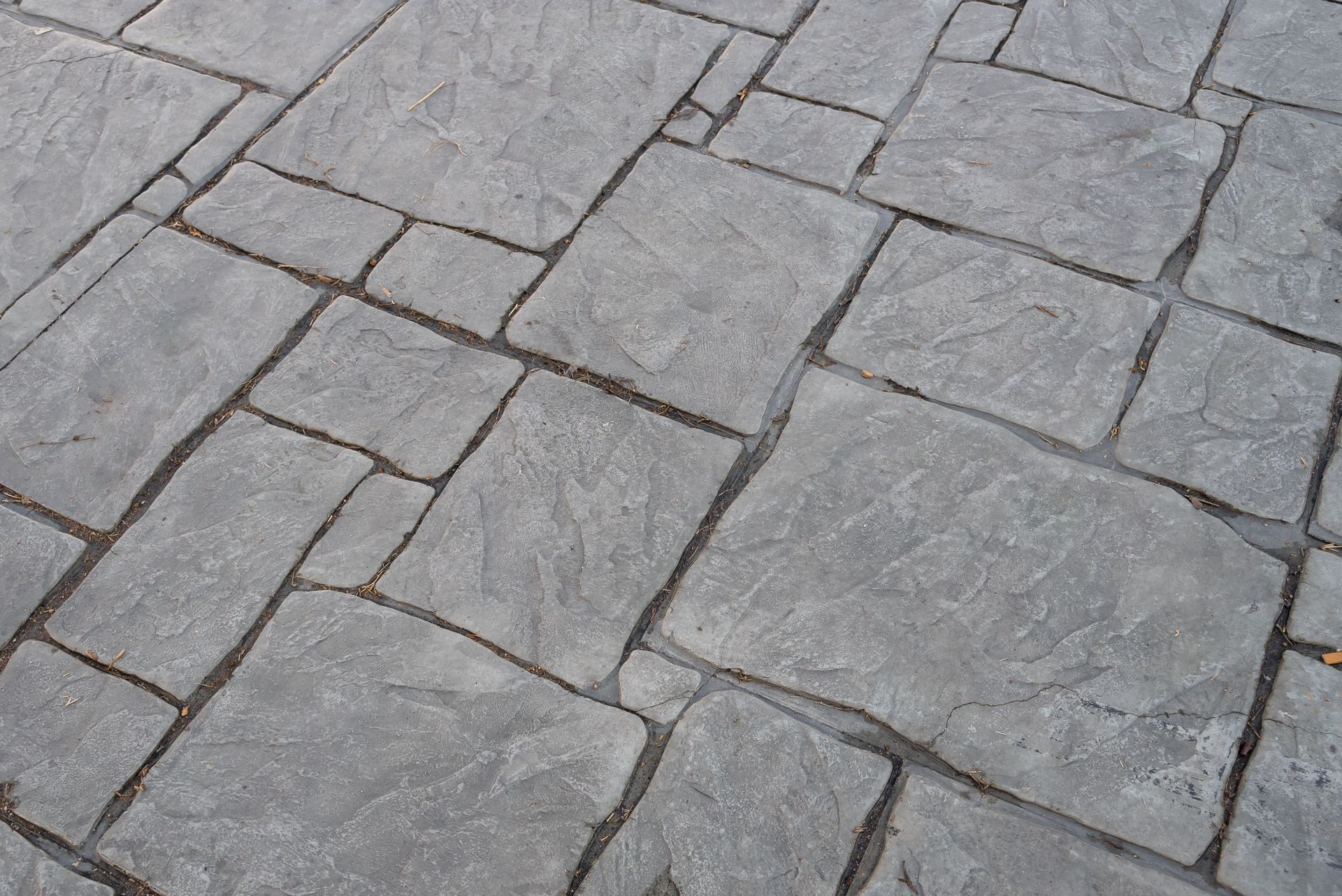
July 9, 2024
At Chamblee Concrete Company, we believe that concrete is not just a practical material for building strong, durable surfaces—it's also a versatile medium for creating beautiful, unique designs that can transform any home. For homeowners in Atlanta looking to enhance their property's curb appeal and interior charm, decorative concrete offers a myriad of possibilities. Here are some innovative decorative concrete ideas to inspire your next home improvement project. 1. Stamped Concrete for Patios and Driveways Stamped concrete is a popular choice for homeowners who want to replicate the look of natural stone, brick, or tile without the associated costs. By using custom molds and specialized tools, our team can imprint patterns and textures into freshly poured concrete. Imagine a patio that mimics the appearance of slate or a driveway that looks like cobblestone. Stamped concrete offers a range of design options, allowing you to achieve a high-end look that complements your home's exterior. Plus, it's durable and easy to maintain, making it a practical choice for outdoor spaces. 2. Exposed Aggregate Finishes For a unique, textured surface, consider an exposed aggregate finish. This technique involves removing the top layer of concrete to reveal the embedded stones or aggregates. The result is a visually appealing, slip-resistant surface that's perfect for driveways, walkways, and pool decks. Exposed aggregate can be customized with different colors and sizes of stones to match your aesthetic preferences. It adds a natural, rugged look to your outdoor spaces while providing excellent durability and low maintenance requirements. 3. Polished Concrete Floors Polished concrete floors are an excellent option for those seeking a sleek, modern look for their interior spaces. By grinding and polishing the concrete surface to a high gloss, we can create floors that are not only stunning but also highly durable and easy to clean. This type of flooring is perfect for basements, kitchens, and living areas. Polished concrete can be customized with various stains and dyes to match your color scheme, and it reflects light beautifully, making your space feel larger and more inviting. 4. Concrete Countertops Concrete countertops offer a unique alternative to traditional materials like granite or marble. They can be custom-formed to fit any kitchen or bathroom design and can be tinted, stained, or textured to achieve the desired look. Concrete countertops are not only stylish but also highly functional. They are heat-resistant, scratch-resistant, and can be sealed to prevent staining. With proper care, concrete countertops can last for decades, providing a one-of-a-kind centerpiece for your home. 5. Decorative Concrete Overlays If you have existing concrete surfaces that are worn or outdated, decorative overlays can provide a fresh, new look without the need for complete replacement. Overlays are thin layers of polymer-modified concrete that can be applied over existing surfaces to improve their appearance and performance. Decorative overlays can be stamped, stained, or textured to mimic various materials, such as stone, wood, or tile. They are ideal for rejuvenating patios, driveways, and interior floors, giving them a modern update while preserving their structural integrity. 6. Stained Concrete Stained concrete is a versatile option for both indoor and outdoor applications. By applying acid-based or water-based stains to cured concrete, we can create rich, vibrant colors that penetrate the surface for a long-lasting effect. Stained concrete can replicate the look of natural stone, marble, or even leather, depending on the application technique. It's a great way to add color and character to your floors, countertops, and outdoor spaces, and it can be sealed to enhance its longevity and appearance. 7. Concrete Fire Pits Enhance your outdoor living area with a custom concrete fire pit. Concrete fire pits are durable, weather-resistant, and can be designed in various shapes and sizes to fit your space and style. A concrete fire pit provides a cozy gathering spot for family and friends, creating a focal point for your backyard. It can be finished with decorative elements like colored aggregates, stains, or even glass beads for a truly unique look. Conclusion Decorative concrete offers endless possibilities for enhancing the beauty and functionality of your home. Whether you're looking to upgrade your patio, install a stylish countertop, or create a stunning polished floor, Chamblee Concrete Company has the expertise to bring your vision to fruition. Our team is dedicated to providing innovative, high-quality concrete solutions that meet your needs and exceed your expectations. Contact us today to explore the potential of decorative concrete for your Atlanta home and discover how we can help you achieve the perfect blend of style and durability.

July 9, 2024
At Chamblee Concrete Company, we understand that replacing your driveway is a significant investment that can enhance the curb appeal, functionality, and value of your home. A well-constructed driveway not only provides a smooth surface for your vehicles but also complements the aesthetic of your property. Here’s a comprehensive guide to the driveway replacement process, ensuring homeowners are well-informed and prepared for this essential home improvement project. 1. Initial Assessment and Planning The first step in the driveway replacement process is the initial assessment. Our team at Chamblee Concrete Company will conduct a thorough inspection of your existing driveway to determine the extent of the damage and the underlying causes. This assessment helps us decide whether a complete replacement is necessary or if repairs could suffice. During this phase, we will discuss your preferences regarding the design, materials, and any additional features you might want, such as decorative patterns or enhanced durability options. This planning stage is crucial to ensure the final result meets your expectations and fits within your budget. 2. Removing the Existing Driveway Once the plan is in place, the next step is removing the existing driveway. This involves breaking up and removing the old concrete or asphalt. Specialized equipment, such as jackhammers and heavy-duty saws, is used to cut the material into manageable pieces, which are then hauled away. Proper disposal of the old material is essential for environmental reasons. At Chamblee Concrete Co., we ensure that all debris is disposed of responsibly, often recycling materials whenever possible. 3. Preparing the Subgrade The longevity and durability of your new driveway heavily depend on the preparation of the subgrade. This involves grading and compacting the soil to create a stable foundation. Any soft spots or areas with poor drainage are addressed to prevent future issues. We may also install a layer of geotextile fabric to separate the subgrade from the aggregate base, enhancing stability and preventing the mixing of materials. Proper subgrade preparation is vital to avoid problems like cracking and settling down the line. 4. Installing the Base Layer After preparing the subgrade, the next step is installing the base layer, typically composed of crushed stone or gravel. This base layer provides additional support and aids in drainage, preventing water from pooling under the concrete. The base layer is spread evenly and compacted using heavy machinery to ensure a solid foundation. The thickness of this layer can vary depending on the soil conditions and the expected load on the driveway. 5. Forming the Driveway Once the base layer is in place, we proceed to set up the forms that will shape the new driveway. These forms are usually made of wood or metal and are secured in place to create the desired outline. Proper form installation is crucial to achieve clean edges and a smooth finish. This step also involves planning for any expansion joints necessary to accommodate temperature-related expansion and contraction of the concrete. 6. Pouring and Finishing the Concrete Once the forms are in place, our team will begin to pour the concrete. At Chamblee Concrete Co., we use high-quality concrete mixes tailored to the specific needs of your project. The concrete is poured, spread evenly, and leveled using tools like screeds and bull floats. After the initial leveling, the surface is smoothed and finished according to your chosen design. This might include texturing, stamping, or applying a broom finish for added traction. Proper finishing techniques are essential to achieve the desired aesthetic and functional properties of the driveway. 7. Curing the Concrete Curing is a critical step that ensures the concrete reaches its full strength and durability. The newly poured driveway is kept moist and protected from extreme temperatures for several days to allow the concrete to cure properly. This process helps prevent cracking and ensures a long-lasting finish. 8. Final Inspection and Clean-Up After the concrete has cured, we conduct a final inspection to ensure everything meets our high standards and your expectations. Any necessary touch-ups are performed, and the forms are removed. We also ensure that the site is cleaned up, leaving you with a beautiful, functional driveway. Conclusion Replacing your driveway is a significant project, but with the right team, it can be a smooth and rewarding process. At Chamblee Concrete Company, we are dedicated to delivering top-quality driveway replacements that enhance the beauty and functionality of your home. By understanding the steps involved, you can feel confident and informed as you embark on this home improvement journey. Contact us today to learn more about how we can transform your driveway into a stunning, durable feature of your property.

April 23, 2024
Concrete driveways are essential features of residential properties, providing both practicality and visual charm. As homeowners, it's vital to grasp the lifespan and upkeep needs of concrete driveways to ensure their longevity and aesthetic appeal. At Chamblee Concrete Company, we offer valuable insights into the factors impacting concrete driveway lifespan, along with expert advice for maintaining their performance and appearance. Understanding Lifespan Concrete driveways are renowned for their durability, with well-installed and maintained surfaces lasting for decades. Modern concrete technology and expert installation techniques have significantly extended the lifespan of concrete driveways. When handled by experienced professionals like those at Chamblee Concrete Company, concrete driveways can endure daily wear and environmental exposure for up to 30 years or more. Maintenance Tips Regular maintenance is crucial for preserving the condition and look of concrete driveways. Key practices include: Sealing: Applying a high-quality concrete sealer every two to three years shields against moisture, UV rays, and stains. Sealers enhance resistance to cracking, spalling, and color fading, prolonging the driveway's lifespan and appearance. Cleaning: Routine cleaning with a mild detergent and water removes dirt, debris, and stains. Avoid harsh chemicals or abrasives that can damage the concrete or sealer. Periodic pressure washing effectively removes stubborn stains and restores the driveway's look. Crack Repair: Promptly addressing cracks prevents water penetration and further damage. Small cracks can be filled with a concrete crack filler, while larger damage may need professional repair to restore structural integrity. Snow Removal: Proper snow and ice removal are essential during winter to prevent damage. Avoid using metal shovels or sharp objects, opting for a plastic snow shovel or blower instead. Apply ice melt sparingly to minimize concrete damage. Signs of Replacement Despite maintenance, there may be signs indicating the need for replacement: Extensive cracking or spalling compromising structural integrity. Settlement or heaving due to soil issues or inadequate base preparation. Surface deterioration like deep pitting, scaling, or erosion. Persistent drainage problems unfixable by repairs. Choose Experts When replacement is necessary, rely on experienced contractors for superior results. Chamblee Concrete Company offers professional concrete driveway replacement services, utilizing advanced techniques and materials for durable, visually appealing driveways enhancing property aesthetics and value. In conclusion, concrete driveways offer durability and aesthetics for homeowners. Understanding their lifespan factors and proper maintenance ensures years of reliable service and curb appeal. For expert guidance and concrete driveway services in Chamblee, GA, trust Chamblee Concrete Company to deliver exceptional results and exceed expectations.
LET'S WORK TOGETHER
Hours
- Mon - Fri
- -
- Saturday
- -
- Sunday
- Closed
QUICK LINKS
© 2025
All Rights Reserved | Chamblee Concrete Company